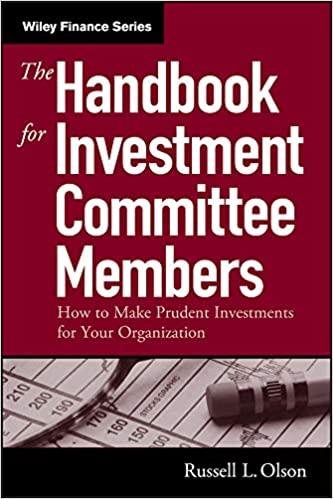Question
Background In the fall of 2008, the Securities and Exchange Commission (SEC) levied civil charges against NBA team owner Mark Cuban for alleged insider trading.
Background
In the fall of 2008, the Securities and Exchange Commission (SEC) levied civil charges against NBA team owner Mark Cuban for alleged insider trading. The charges stemmed from trades Cuban made related to a small internet search company (Mamma.com). Prior to his trades, Cuban was informed by the companys CEO that they were planning to do a secondary equity offering in the near future and that they would like for him to buy some additional shares of the company. Knowing that the offering would (at least temporarily) depress Mamma.coms stock price, Cuban refused and instead began immediately selling his 6.3% stake of the company. The following day, shares of Mamma.com opened approximately 10% lower. Because Cuban successfully sold all of his shares, he was able to avoid losing any money.
Facts about the case
Applicable facts (assumptions are noted as such) surrounding the case include the following:
- Mark Cuban was a significant shareholder of the internet company Mamma.com.
- The CEO of Mamma.com informed Cuban that they were planning to undertake a secondary equity offering prior to informing the public (e.g., Cuban was privy to material nonpublic information).
- After learning of the planned secondary equity offering, Cuban immediately sold his entire stake in the company.
- Had the secondary offering been completed, the total market value of Cubans position would have decreased (assumption).
- Cuban was solely responsible for the large, single-day decrease in Mamma.coms stock price (assumption).
- Assume the United States decided to repeal laws prohibiting insider trading and Mark Cuban did not have to worry about breaking any laws by trading Mamma.coms stock. What is the major ethical issue?
- Who are the stakeholders? In other words, who would be affected directly or indirectly by Mark Cubans decision of how to handle this ethical issue? List at list 3 stakeholders. How would they be affected by the ethical decision?
- Still hypothetically assuming the US does not have insider trading laws, what do you think would be the impact if insider trading became common? Do you think the US should or should not have insider trading laws?
- What are the possible ways Mark Cuban (or someone else in a similar position) could have handled this ethical issue when he had the information but had not yet traded on the information? List at least 2 or 3 alternatives.
The following are different approaches in which people use to resolve ethical dilemmas:
- Follow the golden rule and treat others the way you would like to be treated (or would like to see a family member treated)
- Think of a person of strong character and ask yourself what that person would do.
- Act in a way that you would be comfortable explaining to a family member (or the media)
- Avoid actions that violate core values like honesty, fairness, or trust and that would make you feel uncomfortable afterwards
- Act in a way that provides the greatest good for the greatest number of people
- Avoid action that violates the rights of an individual (i.e. right to privacy for example)
- Which of the above approaches most closely resembles your own way of resolving this ethical dilemma? Why?
- Considering ALL stakeholders and your approach for resolving ethical dilemmas, what do you think would be the most ethical way to handle this situation if you were advising Mark Cuban or in a similar position as Mark Cuban? Why? Identify the relative strengths and weakness of your proposed course of action.
Step by Step Solution
There are 3 Steps involved in it
Step: 1

Get Instant Access to Expert-Tailored Solutions
See step-by-step solutions with expert insights and AI powered tools for academic success
Step: 2

Step: 3

Ace Your Homework with AI
Get the answers you need in no time with our AI-driven, step-by-step assistance
Get Started


